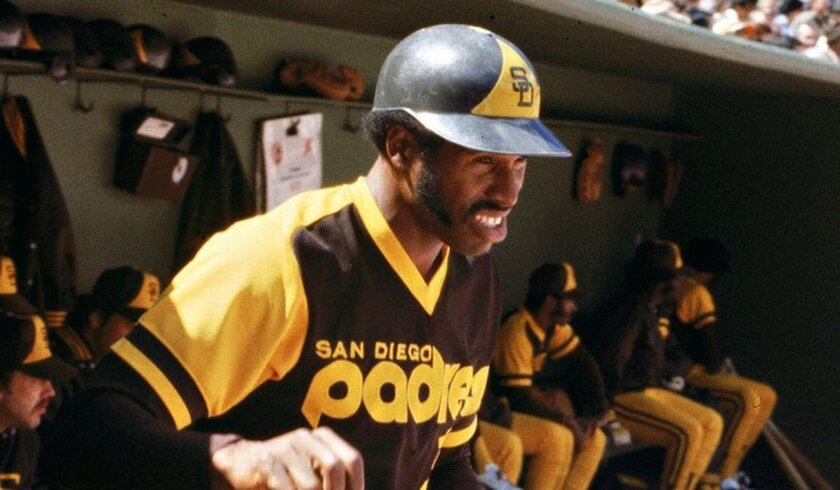I firmly believe that right now there is all kinds of amazing new music being made, maybe more than in my entire lifetime. Television, despite the ponderousness of the prestige format, is far far better than the garbage I was subjected to in childhood. Our athletes are of higher skill, too. Despite all of this I reserve my occasional bites of nostalgia, and one of mine is for 80s baseball.
I still buy old packs of 80s baseball cards to crack open. I read pretty much every 80s baseball book I can get my hands on, and even troll used book stores and eBay for ones that are out of print. I recently found a book I didn't know even existed, This Time Let's Not Eat the Bones, a compilation of Bill James' non-statistical essays from his baseball abstracts, published in 1989. Beyond his always witty prose and trenchant analysis, just being back in the world of 80s baseball has been like holding a warm blanket.
Since I am a hater of nostalgia, I guess I need to find a way to justify myself, beyond the usual search for lost time that most middle aged nostalgics express. Beyond my happy memories, I love 80s baseball for what I would argue are concrete reasons. Here they are.
Style of Play
This here is the number one reason. To be sure, baseball players today are better conditioned and more talented than they were in the 80s. Front office executives, managers, and sportscasters are all far better educated about the game, thanks to the sabrmetric revolution. I go to games nowadays and I see stats like OPS, WHIP and WAR being posted on the scoreboard. The broadcasts measure velocity and talk about a pitcher's BABIP. However, that revolution has created a kind of Frankenstein's monster.
As is well documented, the obsession with stats has led to the reification of the Three True Outcomes (homer, strikeout, walk.) Longer at bats have made games drag on and on. Homers are great, but fewer balls in play means fewer fielding theatrics, fewer close calls on the bases, and just less action in general. IT'S BORING. Back in the 80s games moved faster and were more exciting. Much of this was due to free swinging and the emphasis on speed. There were lots of steals and hit and run plays and they were FUN.
Home run hitting was more of a specialization, which also meant there was a more diverse range of athletes on your average baseball team back then. You had your little slick-fielding middle infielders like Jose Lind doing gorgeous acrobatics as he turned the double play. (Cal Ripken back then was just beginning to show how a shortstop could be a slugger, too.) Since homers were a rare commodity teams often had to keep on portly sluggers who did little else like Steve Balboni and Gorman Thomas. I miss seeing the occasional fat ass with a big bat who would fall over himself trying to field his position.
There were also different kinds of pitchers. Nowadays everybody throws hard and tries to get strikeouts. Pitching motions are pretty uniform, too. I miss the days of a submariner like Dan Quisenberry becoming a top relief pitcher. Back then a knuckleballer could will 300 games, as I witnessed Phil Niekro do in the 80s. As with hitters there were some glorious fat guy pitchers, like Rick Reuschel and Sid Fernandez.
Uniforms
The uniforms were similarly diverse. While the most extreme 70s designs had fallen by the wayside, a lot of that decade's innovations remained: elastic waistbands, road blues, and the Houston Astros' "tequila sunrise" pattern.
Soon afterwards baseball uniforms got boring and well, uniform. I yearn for the days when the Padres dressed like they were working at Taco Bell.
Baseball Cards
As a little boy baseball fan in the 80s you can bet your ass that a significant chunk of my lawn mowing money went to the products of Topps, Fleer, Donruss, and Score. During the 80s baseball cards became a big business and a big bubble that soon burst in the next decade. It was fun while it lasted. While I have bought my share of 1989 Fleer packs, I have yet to get the uncensored Billy Ripkin card.
Diversity of Stadiums
Just as there was a diversity of players and playing style, baseball stadiums themselves were far less standardized. In the past thirty years, most of the old parks have been torn down and replaced by retro stadiums that mostly don't shoot for something new. When they have, like in Florida, they eventually renovate to make them boring.
Back in the 80s there were more just plain old parks out there. We still have Fenway and Wrigley, but we lost Comiskey, Tiger Stadium, and Cleveland Municipal Stadium. Fenway and Wrigley have also been renovated and gentrified. In the 80s the "ashtray" multipurpose stadiums of the 1960s and 70s still stood, from Cincinnati to St Louis to Pittsburgh to Philadelphia. Many of them had Astroturf, including the Astrodome itself. The expansive turf stadiums also encouraged a style of play that relied on speed and bae hits rather than the three true outcomes. Those stadiums were certainly ugly, but they kept things interesting.
Quality of Post-Seasons
I think I became a baseball fan in the 80s because of the multiple nail-biting World Series matchups. The series went to seven games four times and six games twice in the decade. These amazing battles featured moments like Bill Buckner missing the play in 1986 and Don Denkinger's blown call in 1985 along with many others. Even the 4-1 and 4-0 years had amazing moments, like Kirk Gibson's home run in 1988 and a freaking earthquake during game two of the '89 series. Beyond these famous moments, nine different teams won the series in that decade, level of parity not seen since in baseball.






No comments:
Post a Comment